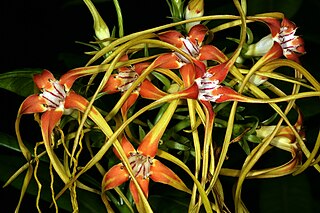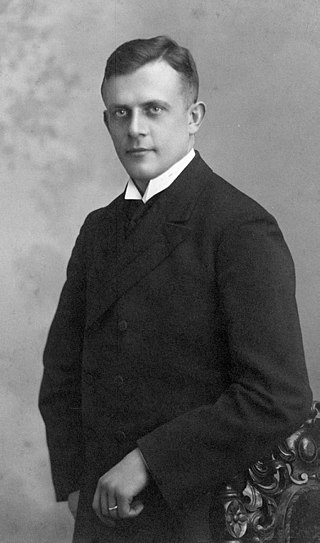
Cardiac glycosides are a class of organic compounds that increase the output force of the heart and decrease its rate of contractions by inhibiting the cellular sodium-potassium ATPase pump. Their beneficial medical uses are as treatments for congestive heart failure and cardiac arrhythmias; however, their relative toxicity prevents them from being widely used. Most commonly found as secondary metabolites in several plants such as foxglove plants, these compounds nevertheless have a diverse range of biochemical effects regarding cardiac cell function and have also been suggested for use in cancer treatment.

Cobra is the common name of various snakes, most of which belong to the genus Naja.
A glucoside is a glycoside that is derived from glucose. Glucosides are common in plants, but rare in animals. Glucose is produced when a glucoside is hydrolysed by purely chemical means, or decomposed by fermentation or enzymes.
Alternative music may refer to the following types of music:
Mountains named Granite Peak or variations.

Strophanthus is a genus of flowering plants in the family Apocynaceae, first described as a genus in 1802. It is native primarily to tropical Africa, extending to South Africa, with a few species in Asia from southern India to New Guinea and southern China. The genus name is a compound of the Greek words στροφος (strophos) "twisted" and ανθοσ (anthos) "flower", in reference to the corolla lobes which, in some species - notably S. petersianus - resemble long twisted ribbons or threads and can reach a length of 30–35 cm. This trait, in addition to colouring involving combinations of bright pinks, purples and oranges, combine to make the flowers among the most ornamental in the plant kingdom.

Paul Robert Schneider was a German pastor of the Evangelical Church of the old-Prussian Union who was the first Protestant minister to be martyred by the Nazis. He was murdered with a strophanthin injection at the concentration camp of Buchenwald.
Arrow poisons are used to poison arrow heads or darts for the purposes of hunting and warfare. They have been used by indigenous peoples worldwide and are still in use in areas of South America, Africa and Asia. Notable examples are the poisons secreted from the skin of the poison dart frog, and curare, a general term for a range of plant-derived arrow poisons used by the indigenous peoples of South America.

k-Strophanthidin is a cardenolide found in species of the genus Strophanthus. It is the aglycone of k-strophanthin, an analogue of ouabain. k-strophanthin is found in the ripe seeds of Strophanthus kombé and in the lily Convallaria.
LGBT literature may refer to:
Honda Dream may refer to any of the following Honda motorcycles:
High schools in North America are schools for secondary education, which may also involve intermediate education.
Visual Basic is a name for a family of programming languages from Microsoft. It may refer to:
Native Americans in the American Civil War refers to the involvement of various tribes of Native Americans in the United States during the American Civil War.
Australia national soccer team may refer to:
Australia national under-23 soccer team may refer to:
This page is based on this
Wikipedia article Text is available under the
CC BY-SA 4.0 license; additional terms may apply.
Images, videos and audio are available under their respective licenses.




